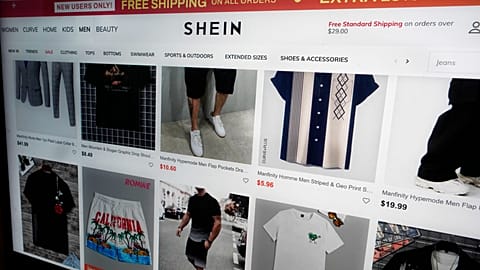The textile industry is sounding the alarm as imports in the fast fashion sector continue to grow steadily.
 ADVERTISEMENT
ADVERTISEMENT
Clothing imports into Europe rose by 14% between January and June 2025 compared to the same period in 2024, a source in the clothing industry has told Euronews, as the EU textile sector called for greater protection from Chinese exports seeking new markets in the EU due to the new American tariff policy.
Some 22 European textile federations, including the Brussels-based association Euratex, sounded the alarm on Tuesday, issuing a statement denouncing unfair competition from fast fashion, which accounts for 20% of online clothing sales on internet.
“Ultra-fast fashion is exacerbating environmental, economic, and social imbalances,” the federations said in a statement, adding that it “puts unbearable pressure on European companies, particularly SMEs, which strive to meet high environmental, ethical, and social standards.”
The statement cited 4,5 billion parcels imported into the EU 2024. Of the total e-commerce shipments valued up to EUR 150, 91% came from China, according to a Commission communication published in February this year.
Fees on small parcels
These figures might have increased since the US administration raised its tariffs on Chinese imports to the US (currently at 57.6%). The US also removed in August an exemption for shipped packages valued under $800.
The 22 European textile federations which signed the statement asked the EU to introduce fees on small parcels to fund customs inspections and to eliminate the customs duty exemption for parcel shipments valued up to €150.
The call relates to a Commission proposal to introduce a €2 handling fee on shipments to the EU. A Commission proposal to remove exemptions on imports of goods valued under €150 is also currently under negotiation within the EU institutions.
The textile industry also called on the Commission to speed up ongoing investigations and impose the “toughest possible sanctions” under the Digital Services Act (DSA), which aims to counter illegal content and products online in the EU.
Last July, the Commission said that Chinese e-commerce platform Temu was in breach of the Digital Services Act for not properly assessing the risks of illegal products it sells on its website.
The statement also asked EU institutions to demand that e-commerce platforms appoint legally authorised representatives so they can be held legally accountable.

















